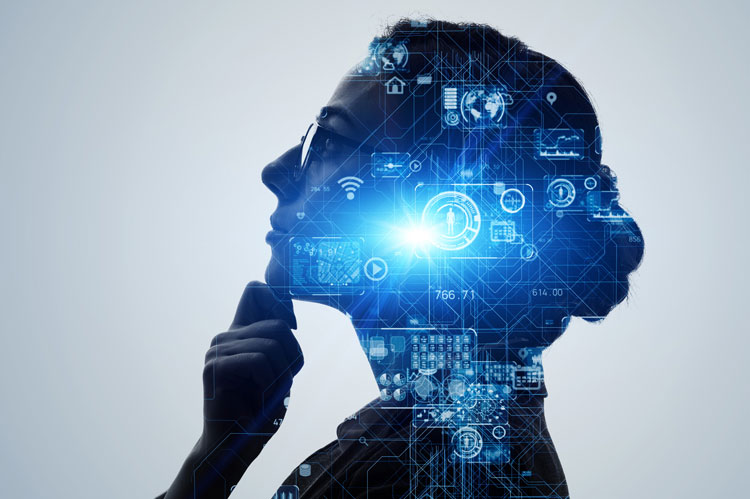
This article considers how the DABUS applications have impacted the debate on AI rights to inventorship and the implications of the decision in South Africa on the AI landscape across the globe.
Authored by Amy Ralston, Solicitor and Abigail Grace, Trainee Solicitor.
There are more and more inventions resulting from collaborations between humans and Artificial Intelligence (‘AI’), and in tandem with this increase, is the ongoing lively debate about what it means for inventorship and the rights in respect of the end results when the same is the result of such a partnership.
DABUS And The Status Quo
DABUS is an artificial intelligence system created by Stephen Thaler which is capable of independent and complex functioning and creation of its own products. The AI itself has created two inventions, for which Stephen Thaler has sought patents. But on the patents, Thaler and his team have named the DABUS AI as the sole inventor. The two patents concern a fractal beverage container and fractal light signals, respectively.
Currently, the use of AI systems that result in new inventions (such as computer-implemented inventions) can benefit from patent protection, subject to certain exclusions. The legal owner of the patent application or granted patent is the applicant (and this must be a legal or natural person such as an individual or a company). The inventor must also be listed on the application, but they have no legal rights to exploit or commercialise the invention covered by the patent. The inventor is a natural person whose contribution goes ‘to the heart of the invention’ (for example if they conceived the idea, were central to the research and development of the invention, conducted experiments which lead to the end result and so forth). As such, many AIs are fulfilling this role in the development of an invention. But until now, they have not been permitted to be classified as an “inventor”.
DABUS Around The World
Dr Thaler has made applications for patents in many countries, which are currently pending, including Brazil, Canada, China, India, Israel, Japan, New Zealand, Republic of Korea and Switzerland.
The patent application in South Africa is particularly noteworthy as it is the first patent application where AI has been listed as the “inventor” – making South Africa the first country to award a patent to an invention created by AI. DABUS also represents the first example of an AI being listed as an inventor in a published Patent Cooperation Treaty (PCT) application with the World Intellectual Property Organisation (WIPO).
Nonetheless, the other DABUS applications (such as the application lodged in the USA, UK and EU) have been refused, though appeals are pending in the UK, EU, Australia and Germany.
In Australia, the Australian Federal Court found that it was possible for an AI to be an inventor (as an inventor can simply be a “thing that invents”) and sent the decision back to the Australian deputy commissioner of patents for reconsideration. The decision preceded that of South Africa’s courts. However, the Australian patent office has announced it will be appealing against the finding by the Full Federal Court of Australia, so the final outcome is still uncertain.
In the EU, an appeal against the refusal by the EPO is scheduled for December 2021. Dr Thaler reportedly intends to argue that there is no explicit legal requirement that the inventor be a human. This case has been designated a case of “high importance and general interest”, and as a result, the president of the European Patent Office (EPO) has requested to intervene. They will no doubt offer a “high-level”, conceptual view of the case, and its implications for the future of the AI industry more broadly. It will be interesting to see what the outcome of the appeal is.
The UK Courts’ View
In September 2020, the UK High Court dismissed the DABUS application on the ground that an “inventor” had to be a natural person. The court concluded that only natural persons can be named as inventors on a patent, but the court did not dismiss a future re-examination of the issue (the judge noted that his judgment did not mean DABUS itself was incapable of developing a creative concept and accepted that DABUS “invented” the technology, but that it could not be listed as the inventor). Dr Thaler has been granted the right to appeal by the UK Court of Appeal.
Signs Of Change?
In September 2020, the UK government issued a consultation, asking questions about how AI should be protected, how the IP system should deal with the acts of AI, and what the moral and commercial considerations are for IP protection for these 21st century developments. In March 2021, the UK government published a response to the consultation, stating that the views they had received were mixed, with some respondents thinking that the inventorship criteria should change, and others saying it would have a detrimental impact on innovation.
Further, The Chartered Institute of Patent Attorneys has called for clarity on the patenting of innovations created using AI systems. They outline three possible ways in which the patent system might be developed. Firstly, AI systems could be recognised as inventors (just like South Africa’s approach). Another option would be to create an additional, distinct category of AI creation within the existing patent framework (which would ultimately mean accepting that not every invention requires an inventor to be identified). Or finally, expanding the definition of a human inventor to encompass an AI system (this could have the effect of precluding the AI system itself from being named as the inventor).”
It is likely that there will be a further period of consultation, including discussions with policy-makers, industry experts and legislators before there are any changes to policy or legislation.
What is clear is that this fast-changing area of technology will continue to challenge existing legislative frameworks and legal thinking for many years to come. We will be keeping a close eye on the assessments, decisions and rulings.
